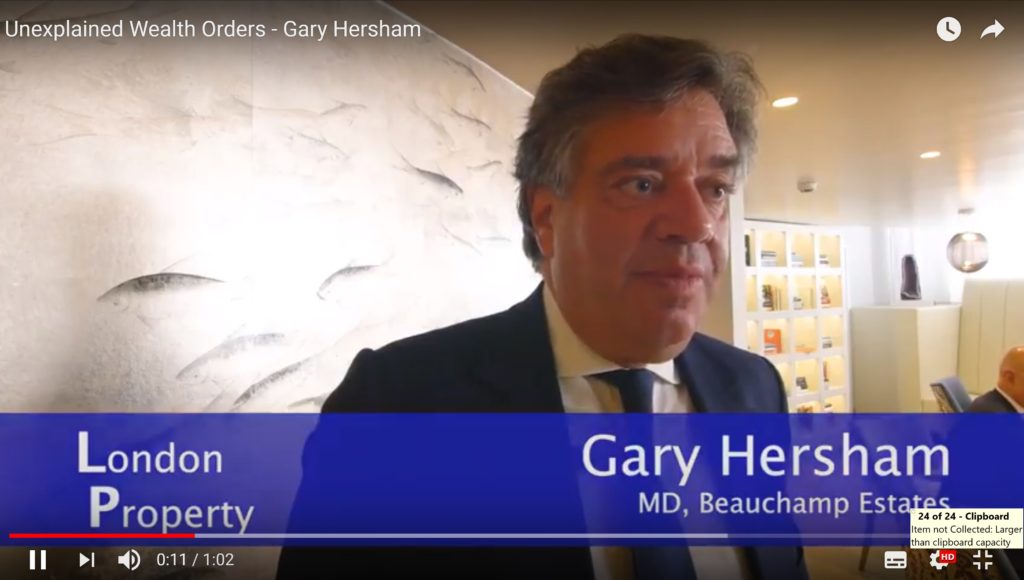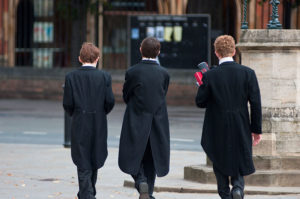[Source; www.gov.uk/government/publications/circular-0032018-]The new powers of “unexplained wealth orders” (UWO) and the supporting “interim freezing orders” commence on 31 January 2018 (except they will not come into force in Northern Ireland at that time). A UWO is an investigation order issued by the High Court (Court of Session in Scotland) on satisfaction of a number of tests.
A UWO requires a person who is reasonably suspected of involvement in, or of being connected to a person involved in, serious crime to explain the nature and extent of their interest in particular property, and to explain how the property was obtained, where there are reasonable grounds to suspect that the respondent’s known lawfully obtained income would be insufficient to allow the respondent to obtain the property. The test for involvement with serious crime is by reference to Part 1 of the Serious Crime Act 2007.
A UWO can also be applied to politicians or officials from outside the European Economic Area (EEA), or those associated with them i.e. Politically Exposed Persons (PEPs). A UWO made in relation to a non-EEA PEP would not require suspicion of serious criminality.
A UWO is a civil power and an investigation tool. It requires the respondent to provide information on certain matters (their lawful ownership of a property, and the means by which it was obtained). It is important to note that, as an investigation power, a UWO is not (by itself) a power to recover assets. It is an addition to a number of powers already available in POCA to investigate and recover the proceeds of crime and should therefore not be viewed in isolation.
The ability to apply for a UWO is limited to those agencies defined as an “enforcement authority”, namely, in England and Wales;
- the National Crime Agency,
- Her Majesty’s Revenue and Customs,
- the Financial Conduct Authority,
- the Serious Fraud Office, or
- the Crown Prosecution Service)
The specific mandates of these authorities is provided in an annex to this circular. These mandates will inform the authorities as to the types of cases in which they may seek a UWO.
In Scotland, the powers are limited to the Scottish Ministers (who act through the Crown Office).
It is therefore not available to the wider law enforcement and prosecution community, except by referral to an “enforcement authority”.
If evidence is produced in response to a UWO, then a decision will be made on how to proceed using that material.
The subsequent use of the material may include referring the evidence to another body to consider criminal or civil action. It is important to note that evidence compelled under a UWO cannot normally be used against the person who provided it in any subsequent criminal prosecution.
A failure to provide a response to a UWO may give rise to a presumption that the property is recoverable under any subsequent civil recovery action. Civil recovery is a procedure in the High Court (Court of Session in Scotland) to recover the proceeds of crime (see Part 5 of POCA). Civil recovery powers are also only available to the enforcement authorities listed above.
A person commits an offence if, in purported compliance with a requirement under a UWO, they make a statement that the person knows to be false or misleading in a material way, or recklessly makes a statement that is false or misleading in a material way. A person guilty of an offence is liable to conviction on indictment to imprisonment not exceeding two years and/or a fine; or on summary conviction, to imprisonment not exceeding twelve months and/or a fine.
Law enforcement agencies and prosecution agencies who do not have direct access to the powers can consider referring a suitable case to an enforcement authority. Prior to making a referral, the referrer should have reasonable grounds for suspicion that an individual, who is either a PEP or involved in serious crime, has insufficient legitimate income for the purposes of enabling the individual to obtain specific identified property (of a value over £50,000), which can be shown to be in their possession. The enforcement authority can then determine whether or not an application should be made.
Agencies, including the enforcement authorities, will be required to consider their legal powers and abilities to share information. This is both when referring information to each other either to support an application for a UWO, or to consider civil or criminal action in regards to the information obtained in UWO.
If information or evidence is referred to an agency, it needs to be aware of the existence of any ‘interim freezing order’ against a property and the deadline by which that will be discharged (i.e. any other power to secure the property will need to be obtained in that period).
Palace Gate manages all aspects of property ownership and complex lifestyles.




